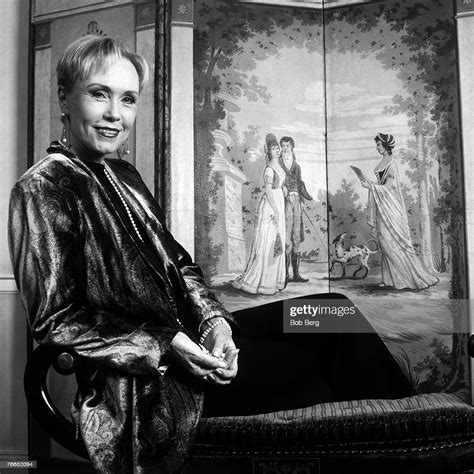A Quote by Judith Martin
One reason that the task of inventing manners is so difficult is that etiquette is folk custom, and people have emotional ties to the forms of their youth. That is why there is such hostility between generations in times of rapid change; their manners being different, each feels affronted by the other, taking even the most surface choices for challenges.
Related Quotes
What my children appear to be on the surface is no matter to me. I am fooled neither by gracious manners nor by bad manners. I am interested in what is truly beneath each kind of manners...I want my children to be people- each one separate- each one special- each one a pleasant and exciting variation of all the others
To sacrifice the principles of manners, which require compassion and respect, and bat people over the head with their ignorance of etiquette rules they cannot be expected to know is both bad manners and poor etiquette. That social climbers and twits have misused etiquette throughout history should not be used as an argument for doing away with it.
This is another thing which I really like investigating in my novels: what is it that makes an intimate society, that makes a society in which moral concern for others will be possible? Part of that I think are manners and ritual. We tried to get rid of manners, we tried to abolish manners in the '60s. Manners were very, very old-fashioned and un-cool. And of course we didn't realise that manners are the building blocks of proper moral relationships between people.
Shame is the proper reaction when one has purposefully violated the accepted behavior of society. Inflicting it is etiquette's response when its rules are disobeyed. The law has all kinds of nasty ways of retaliating when it is disregarded, but etiquette has only a sense of social shame to deter people from treating others in ways they know are wrong. So naturally Miss Manners wants to maintain the sense of shame. Some forms of discomfort are fully justified, and the person who feels shame ought to be dealing with removing its causes rather than seeking to relieve the symptoms.
The etiquette of intimacy is very different from the etiquette of formality, but manners are not just something to show off to the outside world. If you offend the head waiter, you can always go to another restaurant. If you offend the person you live with, it's very cumbersome to switch to a different family.
In the contemporary world, we think of politeness as surface behavior, like frosting - it's sweet and attractive and finishes off the cake. But 19th century nobility and the enlightened thinkers and stoics before them viewed manners in a very different way. To them, manners are an outward expression of an inward struggle.
Human manners are wildly inconsistent; plenty of people have said so. But this one takes the cake: the manner in which we're allowed to steal from future generations, while commanding them not to do that to us, and rolling our eyes at anyone who is tediously PC enough to point that out. The conspicious consumption of limited resources has yet to be accepted widely as a spirtual error, or even bad manners.
There are two qualities that make fiction. One is the sense of mystery and the other is the sense of manners. You get the manners from the texture of existence that surrounds you. The great advantage of being a Southern writer is that we don't have to go anywhere to look for manners; bad or good, we've got them in abundance. We in the South live in a society that is rich in contradiction, rich in irony, rich in contrast, and particularly rich in its speech






























